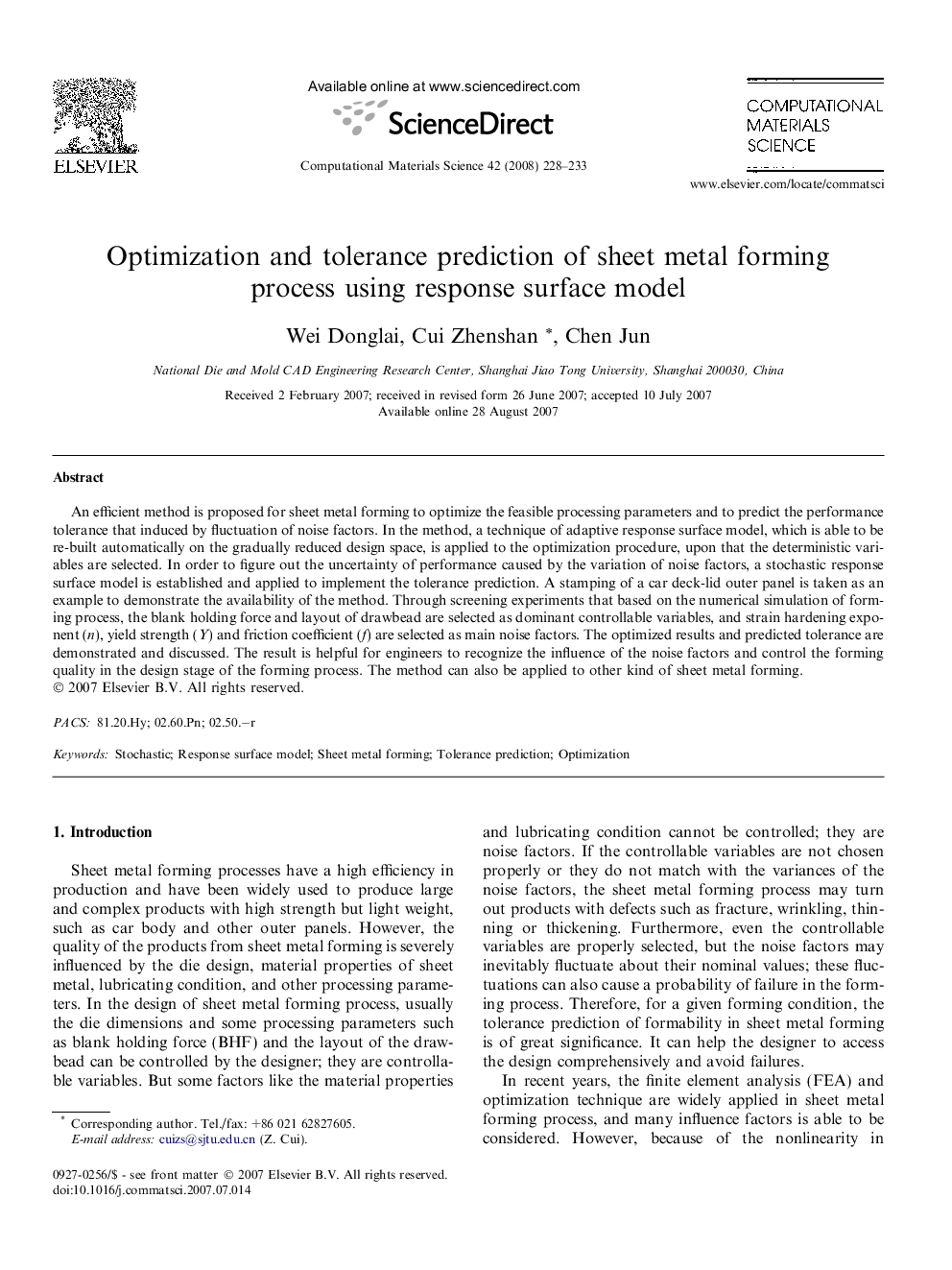| Article ID | Journal | Published Year | Pages | File Type |
|---|---|---|---|---|
| 1564119 | Computational Materials Science | 2008 | 6 Pages |
An efficient method is proposed for sheet metal forming to optimize the feasible processing parameters and to predict the performance tolerance that induced by fluctuation of noise factors. In the method, a technique of adaptive response surface model, which is able to be re-built automatically on the gradually reduced design space, is applied to the optimization procedure, upon that the deterministic variables are selected. In order to figure out the uncertainty of performance caused by the variation of noise factors, a stochastic response surface model is established and applied to implement the tolerance prediction. A stamping of a car deck-lid outer panel is taken as an example to demonstrate the availability of the method. Through screening experiments that based on the numerical simulation of forming process, the blank holding force and layout of drawbead are selected as dominant controllable variables, and strain hardening exponent (n), yield strength (Y) and friction coefficient (f) are selected as main noise factors. The optimized results and predicted tolerance are demonstrated and discussed. The result is helpful for engineers to recognize the influence of the noise factors and control the forming quality in the design stage of the forming process. The method can also be applied to other kind of sheet metal forming.
